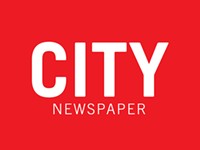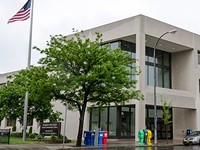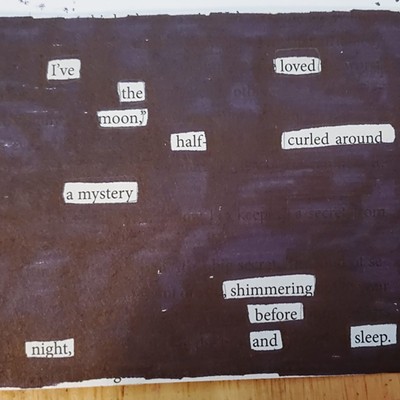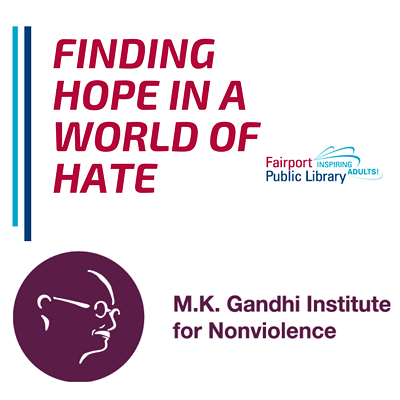[
{
"name": "500x250 Ad",
"insertPoint": "5",
"component": "15667920",
"parentWrapperClass": "",
"requiredCountToDisplay": "1"
}
]
North Korea… Syria… John Bolton in the White House, increasingly erratic behavior from the president: the news just gets worse and worse.
And in an important package in New York Magazine, Rochester's David Cay Johnston and others detail how Trump, his family, and others are profiting from the presidency. Foreign governments staying at Trump-owned properties and signing deals with Trump companies; billionaire friends and donors benefiting from Trump's actions; Trump's children leveraging the family name to promote their businesses: the articles provide page after page of examples of Trump corruption and greed. There's so much of it that we become numb to the excess.
But that's just a sliver of what we ought to be watching. If you want something to really worry about, spend a few hours reading Daniel Ziblatt and Steven Levitsky's "How Democracies Die." It's relatively short – 322 pages including the endnotes – but it's one of the most troubling books I've read in a long time.
Ziblatt and Levitsky are professors of government at Harvard, and they use the history of other troubled democracies to draw parallels with what's happening in the United States, and to warn about what they believe are very real dangers. If we think that America's democracy is so special that it will last forever, or if we envision that threats will come in the form of a home-brewed military coup or a takeover by a foreign country, we're wrong, Ziblatt and Levitsky say.
"The erosion of democracy takes place piecemeal," they write, "often in baby steps."
And, they write: "The tragic paradox of the electoral route to authoritarianism is that democracy's assassins use the very institutions of democracy – gradually, subtly, and even legally – to kill it."
We may think that our biggest problem is Donald Trump, but Ziblatt and Levitsky are clear: he isn't. He's a demagogue, and the constitution's checks and balances were designed to protect the country from demagogues. But that's not enough. Strong democracies have other protections.
One, of course, is our election process, but voters aren't as powerful as we imagine. "It is tempting," Ziblatt and Levitsky write, to think that democracy's survival "is rooted in the collective wisdom of voters." But that, they say, "assumes too much of democracy – that 'the people' can shape at will the kind of government they possess."
"Potential demagogues exist in all democracies, and occasionally, one or more of them strike a public chord," Ziblatt and Levitsk, write. "But in some democracies, political leaders heed the warning signs to take steps to ensure that authoritarians remain on the fringes, far from the centers of power."
In 2016, the Republican Party failed in that gatekeeper role, and Donald Trump became the party's nominee.
Strong democracies also have what Ziblatt and Levitsky call "guardrails": mutual tolerance, acceptance of opponents' legitimacy, respect for people with different opinions, restraint in exercising power. And there, political leaders of both parties were failing, before Trump became president.
There's lots more in this little book. Ziblatt and Levitsky's warning about what they say is Trump's greatest threat to democracy – the possibility that he will get us into armed conflict – is enough to keep us awake at night.
People are "more likely to tolerate – even support – authoritarian measures during security crises, especially when they fear for their own safety," they write. The risk of that happening is high, they think, "given President Trump's foreign policy ineptitude."
"We fear that if Trump were to confront a war or terrorist attack," Ziblatt and Levitsky write, "he would exploit this crisis fully – using it to attack political opponents and restrict freedoms Americans take for granted."
Given the news coming out of Syria, Israel, and Russia, and given the inclination of the president and his new national security adviser, the possibility of war doesn't seem remote right now.
A lot is at stake in this year's midterm Congressional elections.
And in an important package in New York Magazine, Rochester's David Cay Johnston and others detail how Trump, his family, and others are profiting from the presidency. Foreign governments staying at Trump-owned properties and signing deals with Trump companies; billionaire friends and donors benefiting from Trump's actions; Trump's children leveraging the family name to promote their businesses: the articles provide page after page of examples of Trump corruption and greed. There's so much of it that we become numb to the excess.
But that's just a sliver of what we ought to be watching. If you want something to really worry about, spend a few hours reading Daniel Ziblatt and Steven Levitsky's "How Democracies Die." It's relatively short – 322 pages including the endnotes – but it's one of the most troubling books I've read in a long time.
Ziblatt and Levitsky are professors of government at Harvard, and they use the history of other troubled democracies to draw parallels with what's happening in the United States, and to warn about what they believe are very real dangers. If we think that America's democracy is so special that it will last forever, or if we envision that threats will come in the form of a home-brewed military coup or a takeover by a foreign country, we're wrong, Ziblatt and Levitsky say.
"The erosion of democracy takes place piecemeal," they write, "often in baby steps."
And, they write: "The tragic paradox of the electoral route to authoritarianism is that democracy's assassins use the very institutions of democracy – gradually, subtly, and even legally – to kill it."
We may think that our biggest problem is Donald Trump, but Ziblatt and Levitsky are clear: he isn't. He's a demagogue, and the constitution's checks and balances were designed to protect the country from demagogues. But that's not enough. Strong democracies have other protections.
One, of course, is our election process, but voters aren't as powerful as we imagine. "It is tempting," Ziblatt and Levitsky write, to think that democracy's survival "is rooted in the collective wisdom of voters." But that, they say, "assumes too much of democracy – that 'the people' can shape at will the kind of government they possess."
"Potential demagogues exist in all democracies, and occasionally, one or more of them strike a public chord," Ziblatt and Levitsk, write. "But in some democracies, political leaders heed the warning signs to take steps to ensure that authoritarians remain on the fringes, far from the centers of power."
In 2016, the Republican Party failed in that gatekeeper role, and Donald Trump became the party's nominee.
Strong democracies also have what Ziblatt and Levitsky call "guardrails": mutual tolerance, acceptance of opponents' legitimacy, respect for people with different opinions, restraint in exercising power. And there, political leaders of both parties were failing, before Trump became president.
There's lots more in this little book. Ziblatt and Levitsky's warning about what they say is Trump's greatest threat to democracy – the possibility that he will get us into armed conflict – is enough to keep us awake at night.
People are "more likely to tolerate – even support – authoritarian measures during security crises, especially when they fear for their own safety," they write. The risk of that happening is high, they think, "given President Trump's foreign policy ineptitude."
"We fear that if Trump were to confront a war or terrorist attack," Ziblatt and Levitsky write, "he would exploit this crisis fully – using it to attack political opponents and restrict freedoms Americans take for granted."
Given the news coming out of Syria, Israel, and Russia, and given the inclination of the president and his new national security adviser, the possibility of war doesn't seem remote right now.
A lot is at stake in this year's midterm Congressional elections.
Latest in Urban Journal
More by Mary Anna Towler
-

Police reform: advocates on what should come next
Oct 22, 2019 -

Court clears the way for Police Accountability referendum
Oct 17, 2019 -
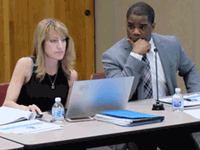
Dade outlines initial actions on district deficit
Oct 9, 2019 - More »
